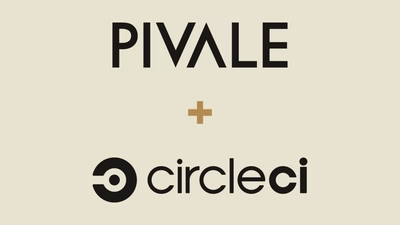Do you have documentation in place so that, when changes to your website are needed, there is a clear process to be followed whether by your in-house developers or your outsourced digital marketing partners?
Just like any other part of your business, having documentation in place about your website, including a regularly updated log of changes, along with an end-to-end change management process is important. Yet it's something that we know many businesses don't have.
As a result, over time, there is a risk that your website - a vital, income-generating tool for your business, is quietly becoming a risk!
Tracking the changes that have been made on your website, by whom, when and why, is critical both for security purposes and also for your peace of mind. Plugins, security updates, structural changes and access rights must need to be robustly managed in order to prevent your website from becoming unstable, resulting in downtime, lost revenue, lost customers and a damaged reputation.
What's wrong with multiple developers and process changes?
Over a long period of time, working with multiple developers or external agencies means that the integrity of your website can be gradually eroded. Different agencies have different ways of working and the ever-evolving nature of the internet means software changes are inevitable. Without a clearly defined process to follow, it's common for makeshift repairs and ‘workarounds' to be made in order to keep a site working. Yet whilst they may seem harmless in isolation, the impact builds up until your site is beyond repair.
To the untrained eye - your website will look perfectly fine. But in the background it is one small fault away from complete failure. Just like building a house, no matter how good everything on the surface looks, poor foundations will make it wobbly and unstable.
How will I know my website is struggling?
So, at C-Suite level how can you tell if your websites are a risk to your business?
The simple truth is, if you're a chief executive, chief marketing officer, or chief financial officer - you need to listen to your team. If your technical team are complaining about problems with the website, difficulties making changes or are making noises about needing to consider a rebuild - these are important signals that your website may be coming to the end of its life.
We understand it may be tempting to kick the can down the road and delay investing in a new website for as long as possible. After all, a new site build may seem like a headache - and a cost. But it's nothing compared to the migraines you could suffer when your fragile site finally succumbs and your website goes down unexpectedly.
I use Wordpress/Shopify - is my website safe?
WordPress, Shopify and other similar providers all do good jobs. To a point. However, the ongoing development of the site is down to the web developer and that demands a high level of trust.
For a growing business, there will come a tipping point at which you need to switch to a more bespoke enterprise solution. Plodding on with a site you have outgrown means that, while your developer might be able to make everything appear ok, fixing one small issue may cause 50 more - and that becomes unsustainable when it comes to supporting continued business growth.
As Ernest Hemingway said, “I went bankrupt in two ways gradually and then suddenly.” It might feel like your website failing happens in one quick moment, but in reality websites will often have been giving off red flags for months or years before finally failing.
Drupal, the open-source software we at Pivale use to build websites, has a robust system in place for dealing with any bugs or weaknesses to be reported. When that happens, all Drupal users are alerted, and it's often resolved quickly.
What should companies be documenting?
This is by no means exhaustive, but the list below provides an idea of what your company should be documenting. This helps future developers understand the processes and circumstances surrounding previous changes.
- Process maps.
- Change logs - what happened, when and why.
- Channels of communications (a living, breathing document).
- Internal documents such as ‘how to' guides on your website. For example, allowing marketing to upload content, developers to upload/update plugins, without causing infrastructure damage.
- Technical site data, Cyber Essentials, ISOs and so on.
In essence, you need to; have a process, follow the process, review the process and update the process.
How Pivale can help
Sadly it's all too common that we're approached by businesses who have had significant downtime due to issues associated with their website. They've experienced the very real pain of lost revenue, unhappy - or even lost - customers and high costs to get back online quickly.
By working with your business, Pivale creates secure and regulated systems that your business can trust to work, today and tomorrow with comprehensively documented processes.
We foster long-term partnerships with our clients and help them incorporate robust digital security within their web services, and speed up your digital transformation.



